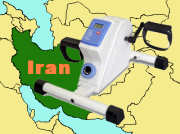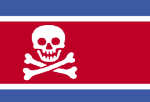 OFAC just released its monthly exercise in non-disclosure, recounting — in as little detail as possible — penalty actions undertaken by OFAC in the previous month. A Cuba vacationer, a guy who purchased a few Cuban stogies over the Internet, and four companies got whacked, among them the Chattanooga Group, a leading manufacturer of physical therapy equipment and a subsidiary of Encore Medical Corporation.
OFAC just released its monthly exercise in non-disclosure, recounting — in as little detail as possible — penalty actions undertaken by OFAC in the previous month. A Cuba vacationer, a guy who purchased a few Cuban stogies over the Internet, and four companies got whacked, among them the Chattanooga Group, a leading manufacturer of physical therapy equipment and a subsidiary of Encore Medical Corporation.
The OFAC penalty is the second act of Chattanooga’s run-in with BIS back in 2001. A disgruntled fired manager tipped off BIS about three exports in April 2000 worth approximately $7500 to Iran through Chattanooga’s office in Australia. The company ultimately settled the matter for $101,000. (Your guess is as good as mine as to how BIS came up with that figure).
After the settlement with BIS, an executive of parent company Encore offered some dangerously frank opinions about the settlement:
We agreed (to pay the fine) because it’s worth that much to eliminate a nuisance,” Mr. Henley said. “We make medical devices that are used for orthopedic rehabilitation. We certainly don’t make anything that is involved with what could be considered a weapon and we never knowingly shipped our products to Iran.
Mr. Henley also maintained that it was nearly impossible to prevent any of the company’s 6,000 independent distributors from improperly shipping goods to countries where exports are banned.
With that background, it is a little surprising that OFAC agreed to settle its part of the case for a mere $3,421.00.

 Posted by
Posted by  Category:
Category: 

 In all the hubbub about the SEC fining El Paso for violating the Foreign Corrupt Practices Act through bribes paid in connection with the Oil for Food program, there has been little mention that OFAC was also part of the hunting party that bagged El Paso. And an examination of the facts that led to El Paso’s settlement of the OFAC charges shows a violation premised on an extremely broad reading of the sanctions regimes administered by OFAC.
In all the hubbub about the SEC fining El Paso for violating the Foreign Corrupt Practices Act through bribes paid in connection with the Oil for Food program, there has been little mention that OFAC was also part of the hunting party that bagged El Paso. And an examination of the facts that led to El Paso’s settlement of the OFAC charges shows a violation premised on an extremely broad reading of the sanctions regimes administered by OFAC. Last week I
Last week I  The U.S. Embassy in Nepal
The U.S. Embassy in Nepal  Last Friday, OFAC
Last Friday, OFAC 

